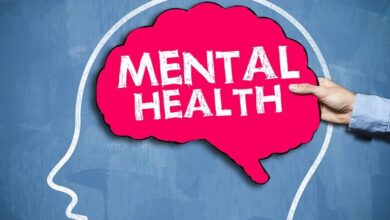The Deadly Truth Behind Painkillers

Addiction to painkillers (analgesics) may be a major problem that affects up to at least one million people within the UK, and lots of more in other countries, including in Europe and the USA. there’s an internationally recognized epidemic of prescribed opiate addiction.
A big part of the matter is addiction to prescribed opiate analgesics, that NHS prescriptions increased from three million in 1991 to 24 million in 2016. However, the matter isn’t confined to prescribed opiate analgesics cheap tramadol UK, for over-the-counter analgesics also are related to misuse and dependence.
The problems presented by painkiller addiction have multiple aspects, including the necessity to treat newly developed addictions, and compromised pain management for people that began taking analgesics due to chronic pain. People that become hooked on painkillers aren’t all one group. for instance , one recent analysis identified four different categories of dependent analgesic users, who all have different needs in terms of recommendation and treatment:
People with ongoing pain and analgesic dependence;
New sorts of treatment are needed for these growing patient groups, and other people using analgesics need accessible information and advice to assist them assess their risk of dependence and reduce their dependent use while optimising pain management. it’s hard to urge the proper balance between using painkillers so as to manage pain and obtain on with living on the one hand, and risking becoming hooked in to painkillers in order that one stops getting the advantages in terms of pain control on the opposite . Information to assist people make better decisions about taking painkillers could help them manage their pain better and reduce the danger of addiction.
GPs, pharmacists, and other health professionals also need help with their work with patients to assist them make better decisions about diagnosis, referral and prescribing. So what evidence could materials like that for the overall public and health professionals be based on?
Research at the University of Derby can make a start with this, and a report published in 2017 within the journal ‘Pain’ gives an example.This found that there have been two simple questions that were highly predictive of people’s level of dependence on painkillers. These were:
Do you feel you depend upon your pain medication?
If an individual answers ‘yes, definitely’ to both those questions, then they’re probably in danger of painkiller addiction and will probably do something to scale back their risk. If an individual answers ‘definitely not’ to both questions, however, then they shouldn’t worry an excessive amount about addiction to painkillers.
These findings came from an analysis of knowledge from nearly 700 people with differing types of pain who used differing types of painkillers. This involved combining data from three studies by James Elander, Frances Maratos, Derby PhD students Omimah Said and Malcolm Schofield, and undergraduate Psychology students Ada Dys and Hannah Collins. The research was funded by a University Research for Learning and Teaching Fund grant, a British Psychological Society Undergraduate Research Assistantship bursary and a University Undergraduate Research Scholarship Scheme bursary.
The analysis aimed to seek out key signs of how likely an individual is to urge hooked in to painkillers. Out of an extended list of 47 questions, the 2 questions shown above were the simplest predictors of how addicted or psychologically dependent they were on painkillers. These findings repose on previous University of Derby research, published in 2014 within the journal ‘Pain Medicine’, which showed that folks in danger of painkiller addiction either took more prescription painkillers more often, buy tramadol 50mg or had a previous history of substance-related problems, or were less ‘accepting’ of pain, meaning they found it difficult to stay going with everyday activities when in pain.
This showed that there have been multiple routes into analgesic addiction, counting on a person’s start line . people that answer ‘yes’ to the 2 questions given earlier could then ask themselves some more inquiries to get a far better understanding of how their own addiction to painkillers could be developing, for example:
Am I using painkillers a touch like I want to use drugs or alcohol?
We have several further projects planned to continue improving our understanding of how painkiller addiction develops and the way to assist people avoid it, and that we hope to use painkiller addiction.
Until then, someone who worries about their use of painkillers should ask their doctor or pharmacist, or maybe a lover or loved one , about how their relationship with painkillers could also be changing. There also are some useful websites with information about the matter , including Kathryn Kemp’s website, author of Painkiller Addict – From Wreckage to Redemption.




